



The Hindi word 'manthan' roughly translates to churning, the process of violently shaking whole milk which brings its fat globules together, causing them to clump, leading to formation of butter or ghee (clarified butter). In Shyam Benegal’s 1976 classic, we see Smita Patil use a traditional butter churn operated by pulling the rope to spin the paddles inside the jar. Patil played a feisty, spunky village woman, Bindu.
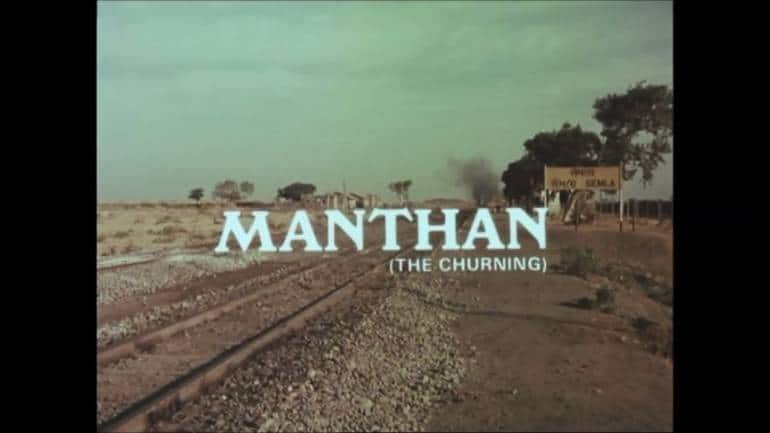 The title-drop from Manthan.
The title-drop from Manthan.
Much like Dr Rao (essayed by the late Girish Karnad), Bindu is a woman strongly guided by her principles. She refuses to give Dr Rao a sample of her milk which he needs for his trials. When Dr Rao takes the sample anyway, she raises hell and how. She rebels, causing the villagers to harangue Rao until Mishraji, the local dairy owner, douses the fire that made the two future lovers quarrel.
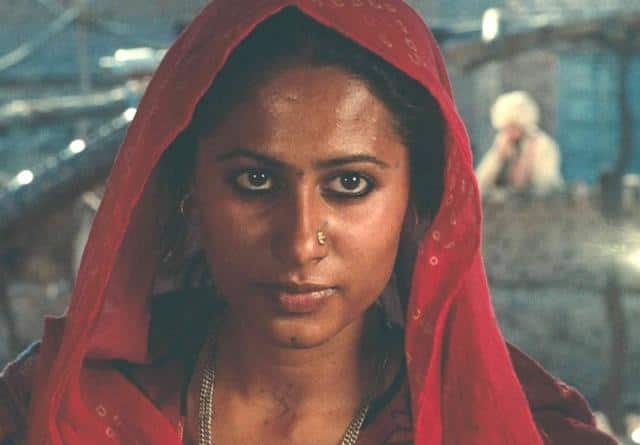 Smita Patil in Manthan.
Smita Patil in Manthan.
Resurrected as a Cannes Classic at the 77th edition of the festival at the French Riviera, the restored print of the 134-minute film premiered, courtesy Film Heritage Foundation—a non-profit non-governmental organization dedicated to restoration and preservation of Indian cinema. The film will be re-released in Indian theaters on June 1.
Based on the life of Dr Verghese Kurien, the father of White Revolution in India who transformed the country from milk-deficit to the largest producer of milk in the world, Manthan isn’t just a success story or to put it rather bluntly, a two-hour-long advertisement for Amul. The film makes pertinent points on casteism, classicism and the lack of democratization of resources which continue to be pressing issues even today.
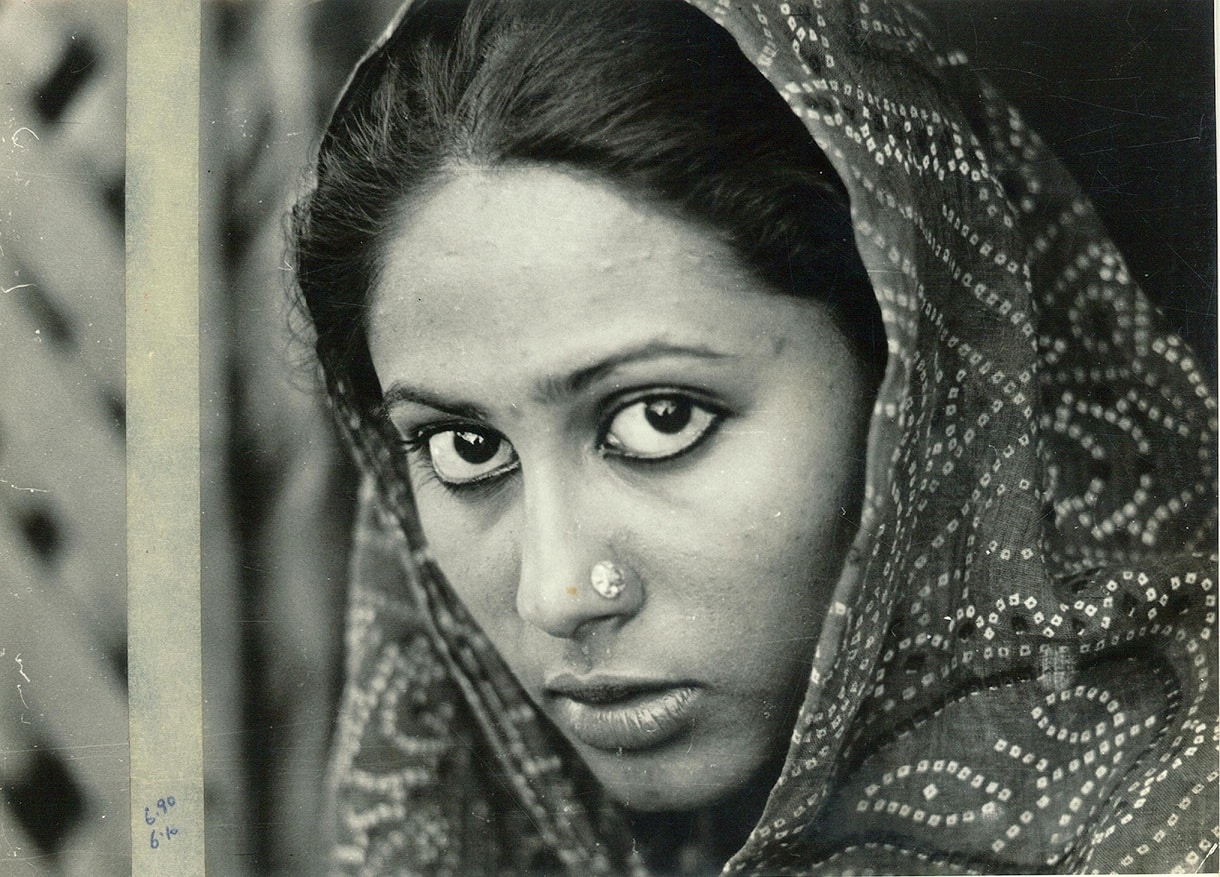 Actress Smita Patil.
Actress Smita Patil.
The very idea of a cooperative society where villagers own the milk they produce, collectively bargain for reasonable rates and democratically elect their leader, makes the local dairy shop owner, Mishraji (played by the iconic Amrish Puri), uncomfortable. And why wouldn’t it? The rates at which he purchased milk from the villagers was barely enough for their sustenance because of which, they often had to dilute the milk with water, bringing the fat percentage below five.
The idea of a cooperative society sanctioned by the local Panchayat made Mishraji uncomfortable. He fumes over the veterinarian doctor who is hell-bent democratizing the ownership of resources. In a telling scene, Dr Rao says “Saari malai toh aap khaa gaye Mishra Ji (You are eating up all the profits)”.
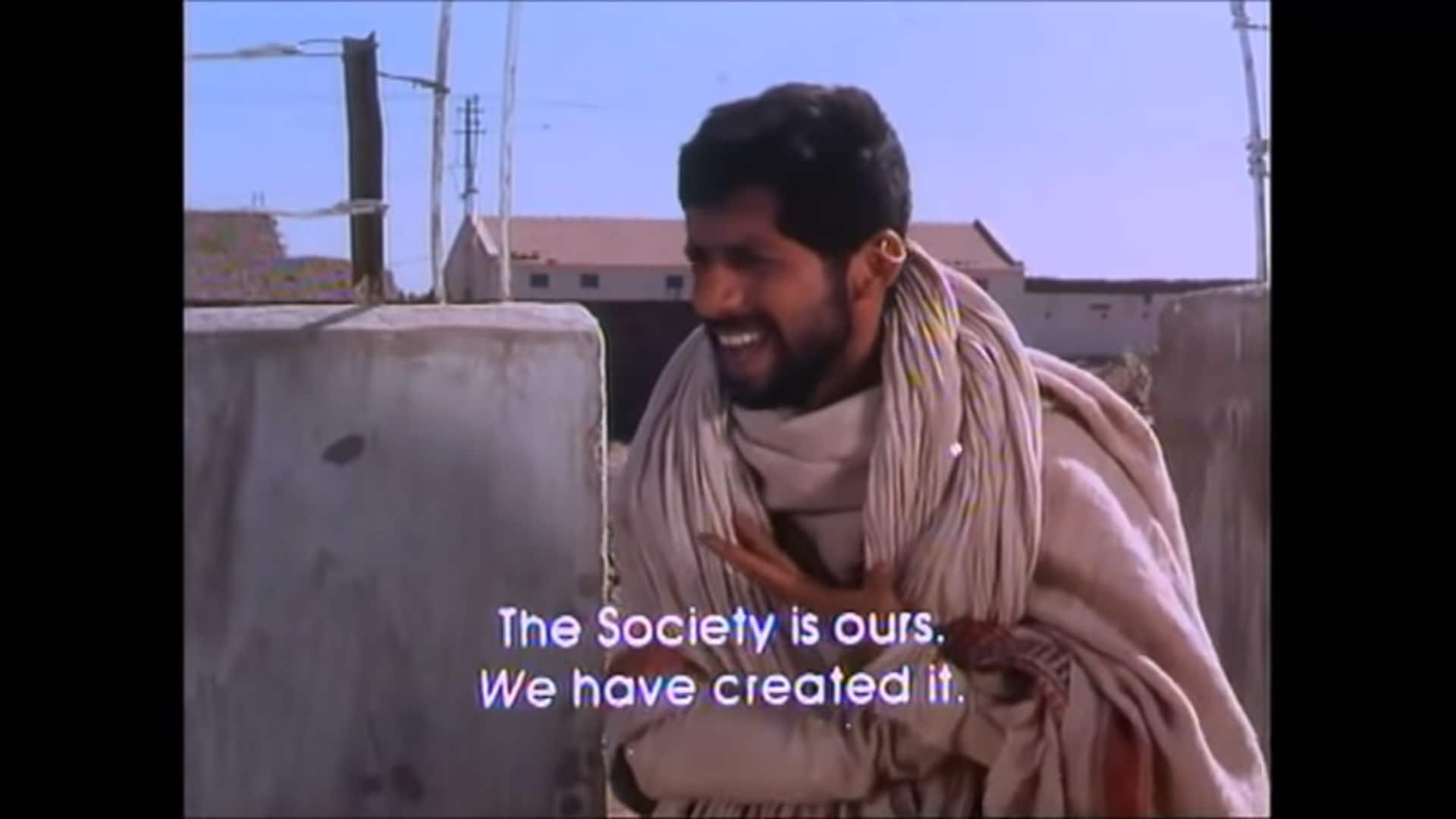 Naseeruddin Shah in Manthan.
Naseeruddin Shah in Manthan.
Mishra’s support notwithstanding, Dr Rao knows what he has set out to achieve will be difficult. The hostility from the local Harijan community, led by Bhola (Naseeruddin Shah), stokes fires of conflict between the higher caste Panchayat head (Kulbhushan Kharbanda) and the Harijans. Not just that, the cooperation for villagers doesn’t come easily—they are rigid, not conducive to change initially and generally hostile.
Amid the tussle between villagers and the doctors, love blooms—Dr Rao and Bindu fall in love but the two are heartbroken later when Bindu’s husband, who was initially missing, returns. Chandavarkar (Anant Nag) falls for a Harijan girl, an inter-caste love affair which villagers would not be pleased to discover.
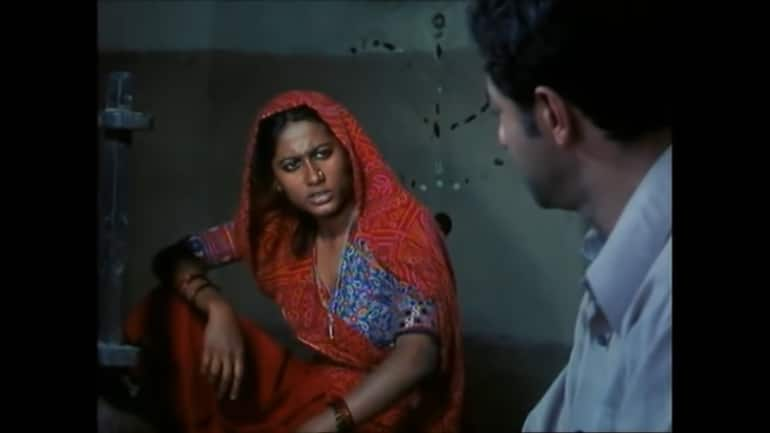 A scene from Manthan.
A scene from Manthan.
Thus begins the war between Dr Rao’s ideals, who wants to establish a cooperative based on democratic ideals and Bhola, the Dalit leader who feels the upper caste men would usurp the cooperative, much like other institutions of society. Nevertheless, post-elections, the Harijan representative wins, much to the dismay of upper-caste who then coerce Bindu to file a false rape case against Dr Rao.
In many ways, Manthan was truly ahead of its time. It showed that democratization of resources and elimination of the corrupt middlemen can greatly benefit the society-at-large. The film portrayed the caste tussle between Harijans and upper-caste men to stirring effect. The hesitation of Dalits to trust an upper-caste Dr Rao exposes the cracks in India’s social foundation where a history of exploitations makes it difficult for the oppressed to place their trust
in the privileged caste.
Bhola’s eventual change of heart stays with the viewer for a long time. After Dr Rao departs from the village with his wife, Bhola and Bindu, both of whom were apprehensive of trusting him initially, continue working for the cooperative. Manthan was a crowdsourced film—before the word ‘crowdsourced’ even came into existence. It is a testimony to the spirit of entrepreneurship in Indians. More so, the melodious song Mero Gaam Katha Parey crooned by Preeti Sagar (she won the Filmfare Award for Best Female Playback Singer for it), will evoke just the right amount of pathos and nostalgia in ‘90s kids.
Manthan will be re-released in India on June 1.Discover the latest Business News, Sensex, and Nifty updates. Obtain Personal Finance insights, tax queries, and expert opinions on Moneycontrol or download the Moneycontrol App to stay updated!
Find the best of Al News in one place, specially curated for you every weekend.
Stay on top of the latest tech trends and biggest startup news.